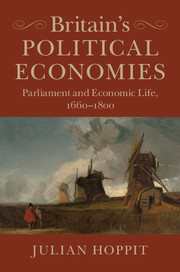Bibliography
Published online by Cambridge University Press: 11 May 2017
- Type
- Chapter
- Information
- Britain's Political EconomiesParliament and Economic Life, 1660–1800, pp. 337 - 379Publisher: Cambridge University PressPrint publication year: 2017



